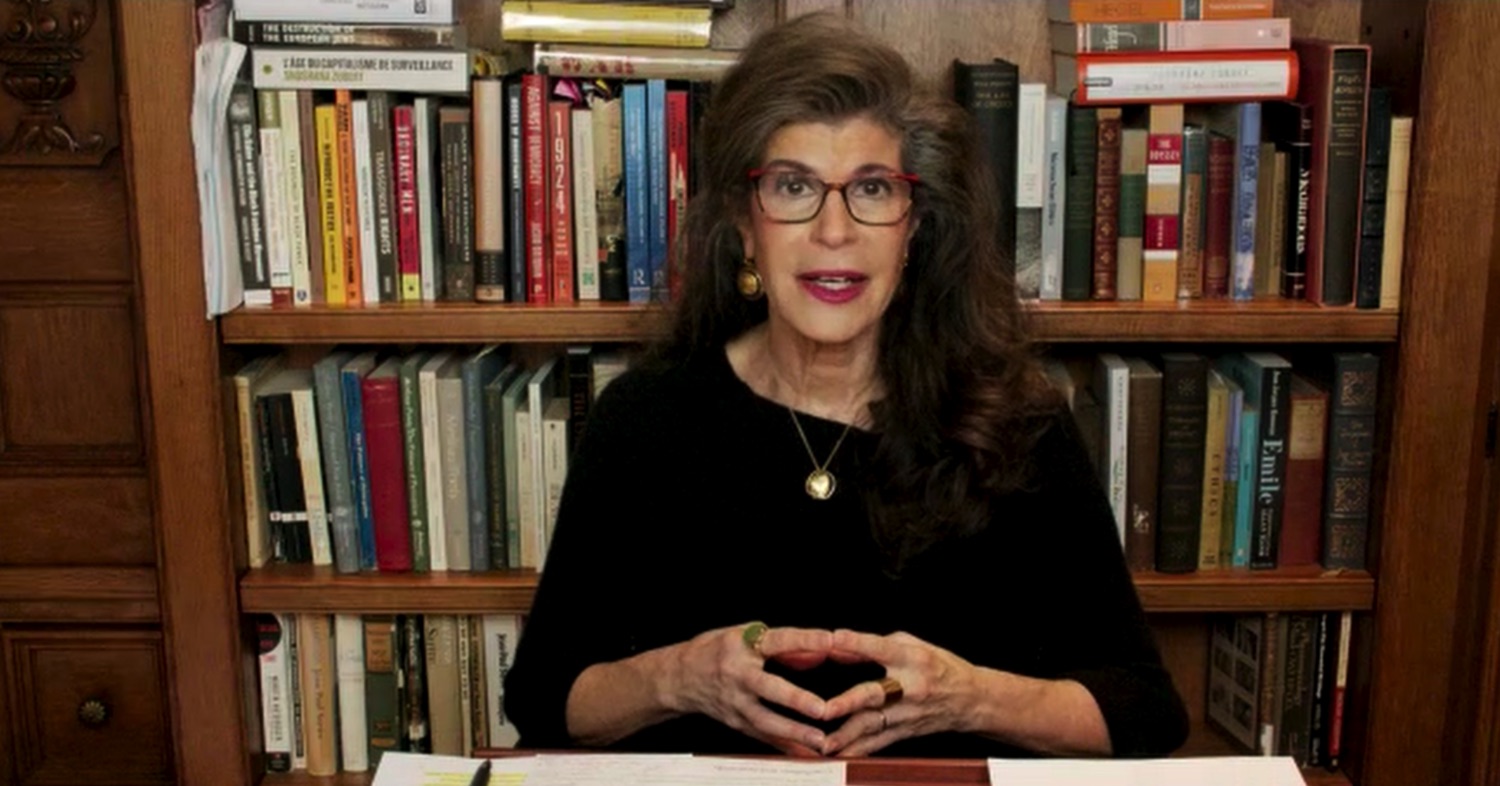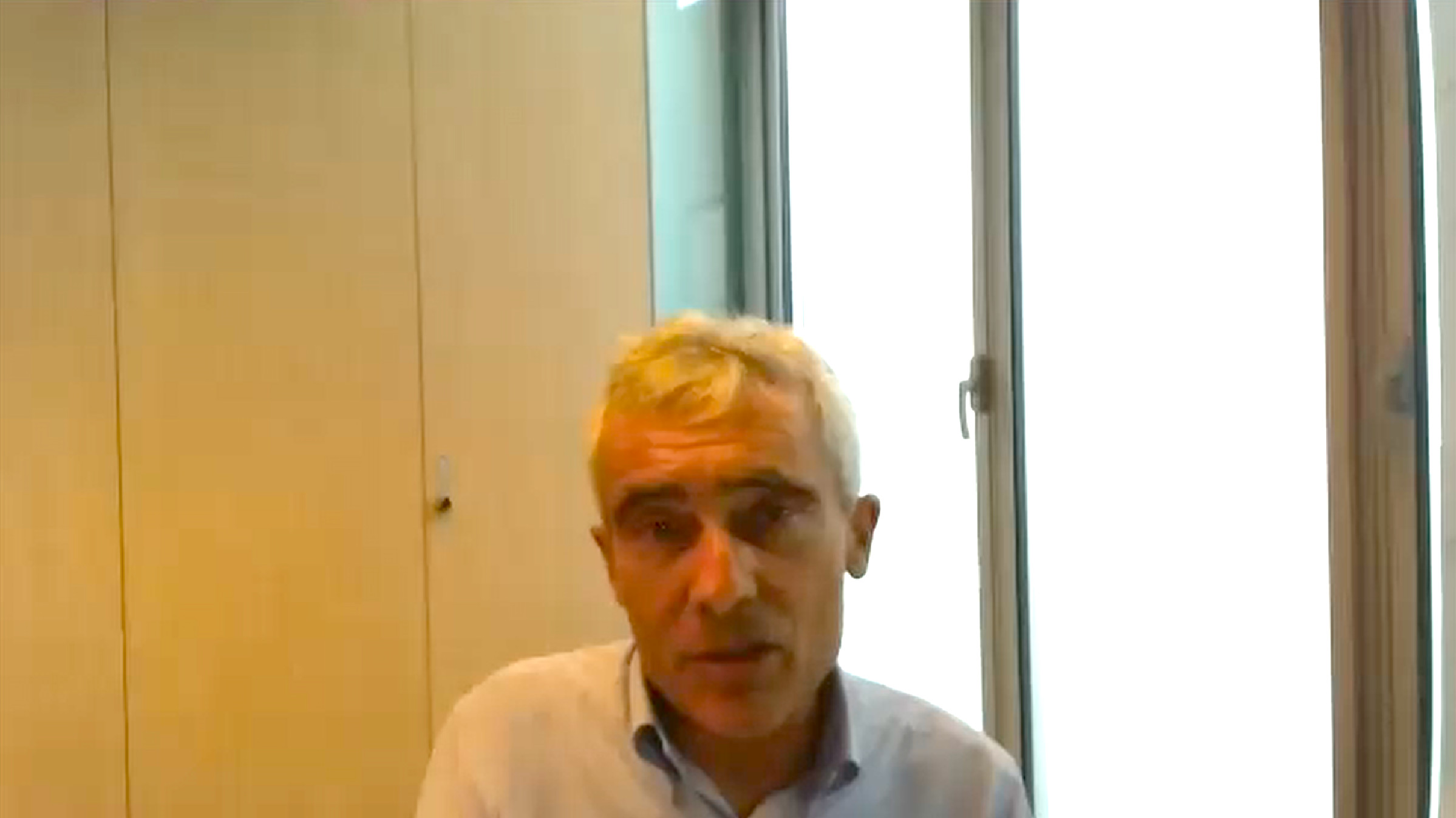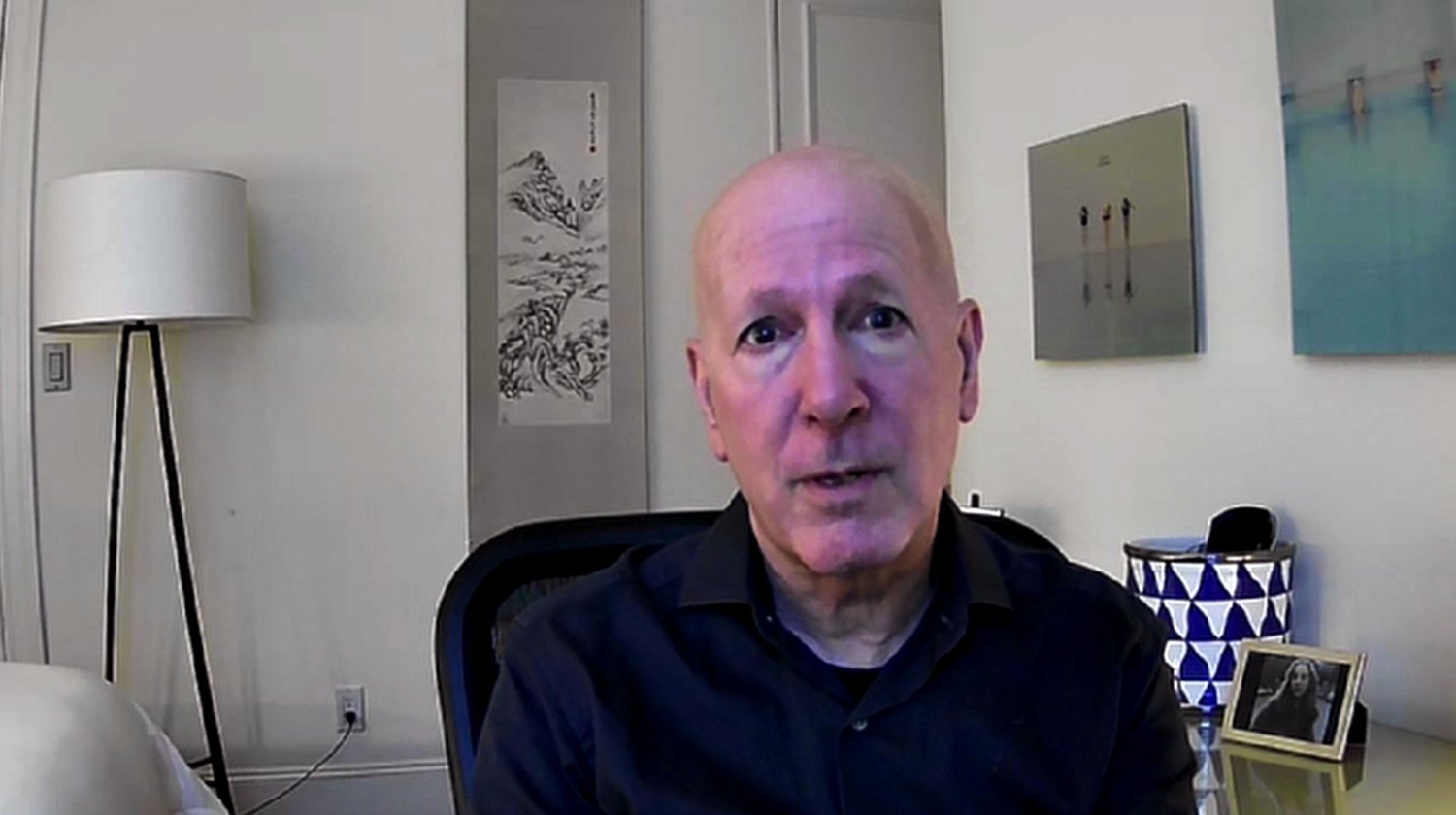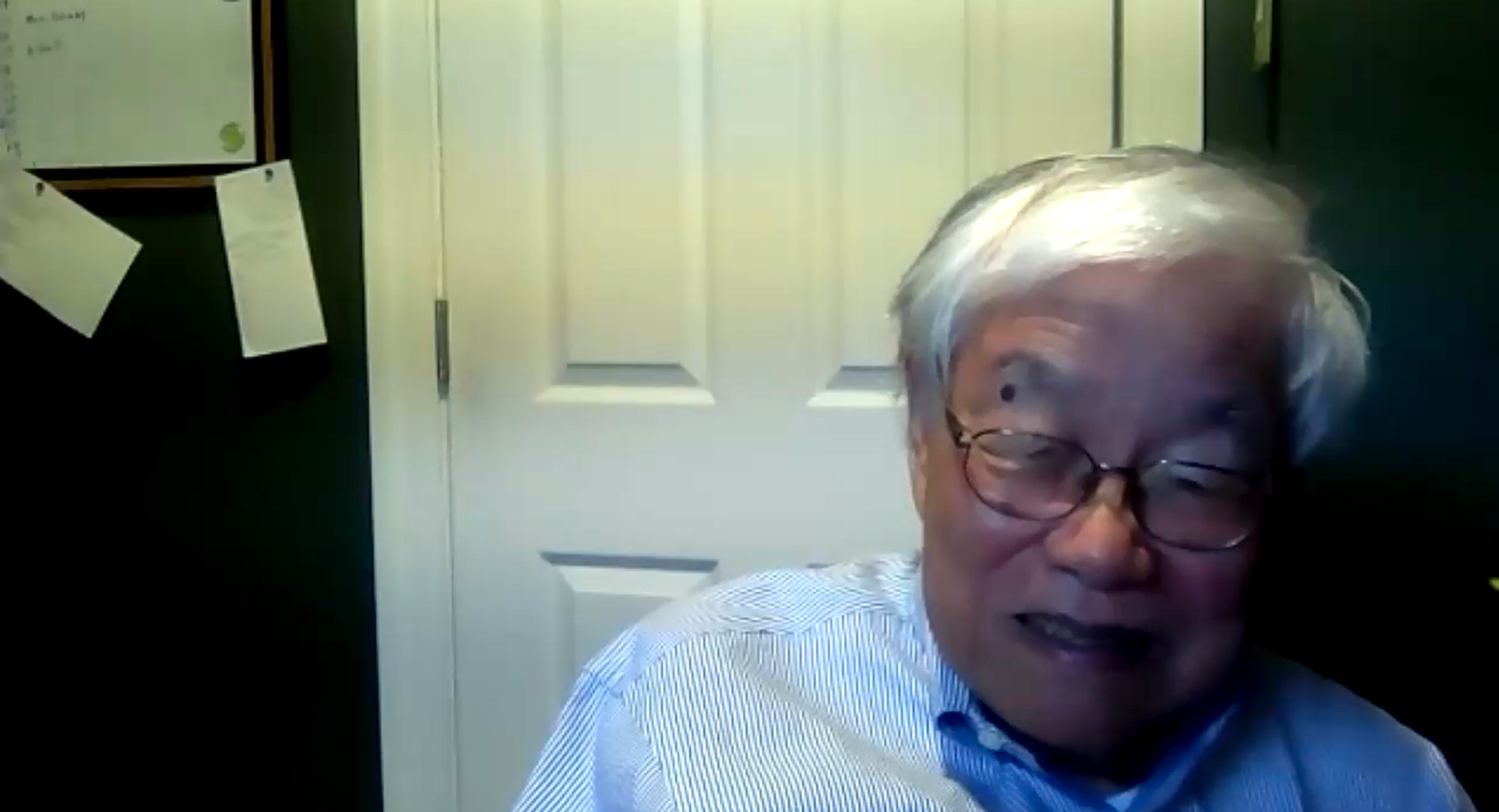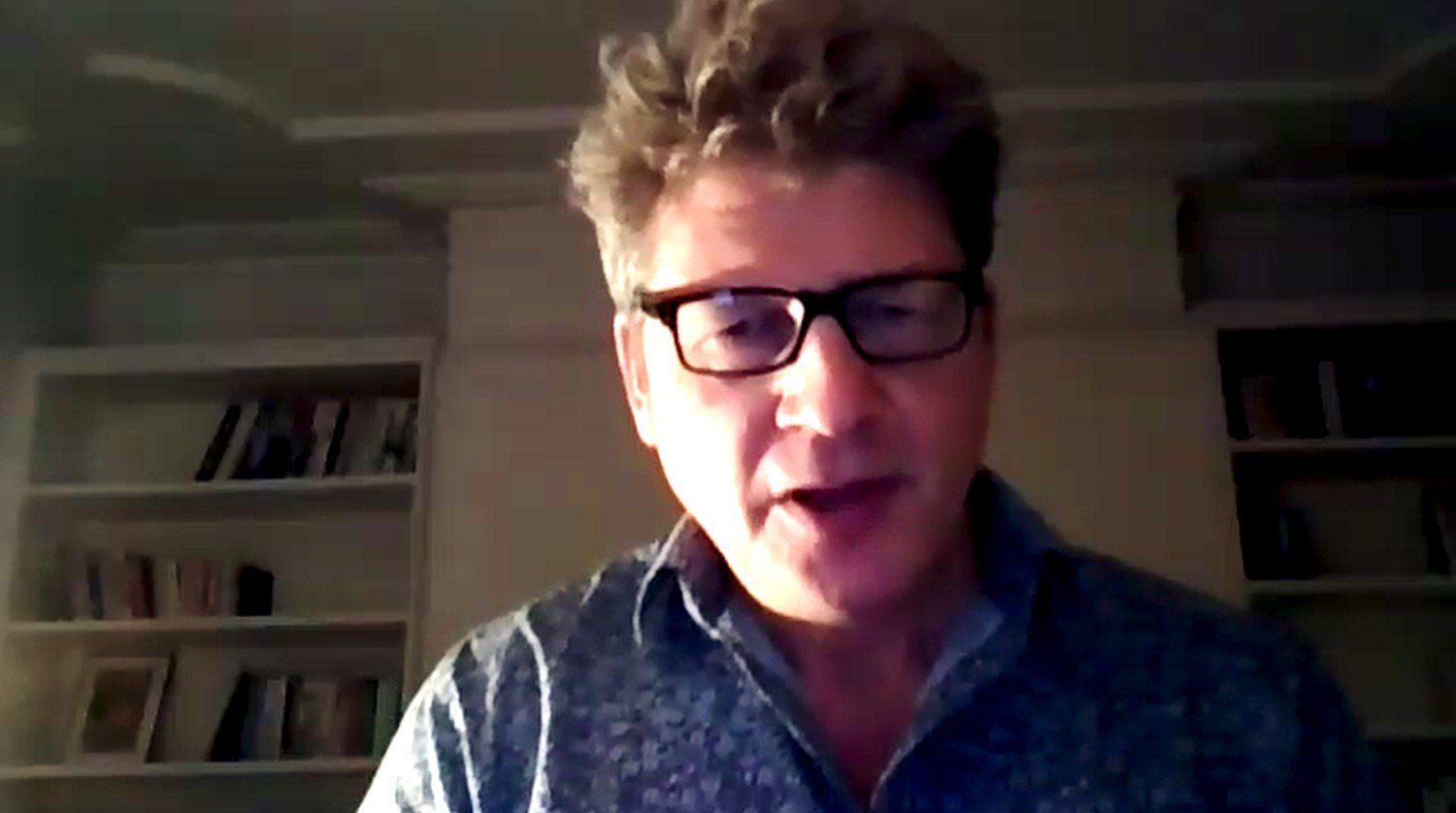HRH Muhammad Sanusi II
Nigerian. Economist, former Governor of the Central Bank of Nigeria, former Emir of Kano
1. Why does economics matter?
You know, from the very first lesson we learned in economics, and if economics lives up to its expectations of what it says it is, it is primarily about the prioritization of allocation of scarce resources in order to meet the material wants. And that fundamental reality exists no matter what ideological position you have, which is that the resources that we have available to us are nowhere near sufficient to meet all the needs that we have.
And to the extent that economics remains faithful to that, which is a recognition that this is about making the best use of our endowments in order to give humanity the highest quality of welfare, economics will continue to be relevant. Now, obviously, that is a question where there are a number of booby traps. How do you prioritize your needs? How do you make the choice? Who benefits from what choices you make? Who loses from what choices you make?
What choices are absolutely necessary? Which ones are driven by the interests of those who are in political authority? And therefore all the debates and economics, to my mind, basically flow not from the fundamental question of the importance of this subject, but from the politics of it.
The human interventions, the choices that we make, the priorities that are explicit or implicit in the decisions that we take, and the winners and losers as a result of those decisions. But the fundamental question that we need to figure out is how to allocate, how to utilize, how to maximize, how to distribute the resources in order to make the life of humanity better. That will continue to be important as a question.
2. What are the differences between economic science (academic economics) and economic engineering (policymaking)?
So very often when you actually sit in a policymaking position, you’re confronted with that decision, especially if you sit with policymakers who have responsibility for society far beyond economics.
So I’ll give you an example from my experience as governor of the central bank. I was a member of what is called the National Economic Council in Nigeria, and that National Council is chaired by the vice president. It has in it the central bank governor, the finance minister, the budget and planning minister, and then all the governors of the states. So to give you just one instance, for example, we had a very strong position between myself and the finance minister on our side as the technocrats, and the government on the need to remove fuel subsidies.
It generates a big hole in the government’s budget. We were basically effectively subsidizing consumption, keeping refineries in Europe open, depleting our foreign exchange reserves, we were weakening the government’s fiscal position because the money could have been used better in other areas and so on. Now, we constantly and consistently, as economists, did not see the benefits of these subsidies in the long term. We saw the dangers of this fiscal position and the corruption of the system.
On the other hand, for those who had taken the decisions, they were concerned about the perception that the poor were going to suffer with the removal of the subsidies. And we always had these debates where we would push for them and they were pushing back. I remember a meeting where they said to us, look, let me down Ngozi. You are not contesting elections, OK? So you want to push us to do this and then we’ll get voted out of power.
And in those meetings, we would say to them, look, our duty as economists is to tell you the implications of this chance that you’re taking, that for every one billion dollars you take you use to pay petroleum subsidies it’s one billion dollars taken out of education, out of health care, out of infrastructure, out of security, out of power. It’s one billion dollars you’re borrowing and adding to the government debt, which the next generation would have to pay.
Now it is up to you as politicians to decide that it is better for Nigerians to have cheap fuel than to have good education. It’s better for them to have cheap fuel, but it’s a political decision. But from an economic perspective, I can tell you the decisions that you’ve taken by continuing to pay these fuel subsidies are sub-optimal in terms of the human capital benefits, in terms of the long term fiscal sustainability, in terms of encouraging the investments in domestic refining - because subsidized fuel basically discourages investment.
So I can give you all sorts of consequences for that but ultimately you will have to decide. And, you know, you can feel sometimes talking to them that they do understand this and they do accept it, but they simply do not believe they can communicate this well enough to people, for people to understand that it is in their interest to pay a higher price for fuel because somebody is going to say, no, this is a trust deficit and so on.
So there was always that challenge between what economic theory states you should do and what you would actually do, because when you actually come in there, you have other considerations. And then, of course, there are questions of other value that you’ve got to look at. Sometimes economics is not the only thing that matters. You could take a decision that would, for example, attract foreign investment and lead to to high GDP growth. But it could also mean that a significant part of the income is taken out of the country and therefore you have GDP growing but the income of the local population not growing.
And you could take the view that, yes, you might have slower GDP growth, but if you’re creating jobs and employment for the lower income strata, it is probably better to have a local direct investment than the foreign direct investment. So for me, I think what we need to understand as economists is to be a bit humble, to understand that the that life goes beyond just dollars and cents, that there are many things to consider, and also that we should be on the table, we must be on the table. Economic science should be an input into policy, but it should not be the sole determinant of policy.
3. What role does economics play in society? Does it serve the common good?
I think it does. I mean, if you go back to what it is, I think it’s totally inescapable. And I think one of the worst things a government can do to itself is ignore the discipline of economics.
Take developing economies, take Nigeria for example, and the issues that we have today. People talk about insecurity, we talk about increased poverty and so on, but at the end of the day you can actually trace some of the roots of what we see as social problems, ethnic problems, religious problems, to wrong decisions as far as the economy is concerned. At the end of the day human beings need to survive, human beings need to have a decent quality of life in order to be decent human beings. And without allocating the resources of the nation in such a way as to guarantee a decent welfare for the vast majority of the people, you’re not going to have all the other things that you need for society to thrive.
You’re not going to have peace, you’re not going to have security, you’re not going to have a functioning democracy because with poor people, with a little amount of money, you can compromise the system, you can have fraudulent elections.
So every single thing we set for ourselves does not work because people are struggling to have that basic fundamental life which they need without which they can do nothing. They can’t worship.
So you have religious problems because people are looking for food. And you find fights between religions, but they are really fights over resources. You have fights among the Fulani ethnic group, who were herdsmen and farmers. But it’s an age old struggle for resources: you’re struggling for water, you’re struggling for land. And until we understand that at the heart of this point it’s not an ethnic issue between ethnic herdsmen and ethnic farmers, but the fact that you’ve got a large population, you’ve got diminishing water resources, you’ve turned grazing fields into farmland, you’ve turned farmlands into houses, and you’ve got to actually see it as a resource allocation problem. How much land do you need for housing and maybe you should start building houses vertically instead of horizontally so you have enough land left for farming and enough land for grazing. Until we begin to understand that at the heart of many of the social problems are economic questions, I think we’re not going to have a solution to the social problems.
4. Economics provides answers to problems related to markets, efficiency, profits, consumption and economic growth. Does economics do a good job in addressing the other issues people care about: climate change and the wider environment, the role of technology in society, issues of race and class, pandemics, etc.?
I don’t think it does, or as structured today the discipline itself does not cover those things. But I also am not sure it’s so much a fault of economics as a failure of people to realize the limitations of every discipline. Economics cannot answer all the questions, and we therefore need to understand that economics and economic theory is just one input, as I said, into a wider policy. However, there are hidden prejudices sometimes in the manner in which we ask economic questions and in which we approach issues.
So, for example, there is a fundamental sense that markets are good. That’s the fundamental stance that the price is a fair value. That’s the fundamental assumption that if you allow the free markets to work and allocate resources, then the outcome is OK. So to that extent, there are certain assumptions in economics that have been extremely damaging. I think maybe the two richest Africans today are from Nigeria. Certainly the richest, Aliko Dangote, is from Nigeria.
He’s also from a state called Kano. And yet in that state, 77 percent of the population is living in extreme poverty. And Nigeria today has the highest number of poor people in the world. So how come you’re producing the wealthiest African, but you’re also the poverty capital of the continent and poverty capital of the globe? There must be something fundamentally wrong with the way economics is structured to create those kinds of extreme inequalities. And so to that extent, if those outcomes are a result of economic policy, then economics is somehow responsible for these social outcomes.
And then you reach all those issues of poverty. And of course, you’ve got malnutrition. You’ve got a lack of investment in education. So you’ve got huge infant mortality, you’ve got maternal mortality, you’ve got climate change. And is that really… it may not be the fault of economics, but it would help if in designing economic policies we widened the horizon, we broadened our thinking to ask what: are the implications of this on different social groups? What are implications on different values, and what are we encouraging?
I also think the overarching focus on economics and financial status and on what we can count has undermined other values, for example: why is it more important to support an investment in a company than to support an investment in the education or the nutrition of a child? Now, it could be a drain on the economy financially in terms of financial outcomes. It could be a drain. But what value do you put on the human life? What value do you put on the happiness of the child? What value do you put on the life of the child? So what do we measure when we say GDP?
Do we measure peace? Do we measure stability? Do we measure that people can be poor and very happy? People can be poor and very happy. Basically, beyond a certain level money loses value for certain people. Not everybody wants to be a billionaire. All they want is to be able to eat, have good nutrition, have an education for their children, and they probably are going to spend more time on religion, on thinking, on philosophy, on the arts, than on basically hours and hours trying to earn more money that they’re going to put in a bank.
So in what way we have we, by emphasizing all the time and reminding people that they’re poor, they’re poor, and they need to get more, in what way have we change the values of people, changed their sense of self-worth?
How have we made it possible for someone who is a very decent person, who has high integrity, who has a high moral sense, feel so worthless because he does not have a certain economic status? Because that is the hierarchy that’s encouraged by economic thinking. You feel inadequate because you don’t own economic assets. So I think we can, having had a basic knowledge of economics, also try to broaden and go back to being like the classical economists who were basically moral philosophers like Adam Smith, go beyond economic questions. And I think that’s what we’ve lost. I mean, many people talk about Adam Smith’s Wealth of Nations. Few people talk about his Theory of Moral Sentiments. The whole idea that a human being is not just an economic being, but he’s a totality and that economists need to understand that, I think that’s what we need to get back to.
5. As we live in an age of economics and economists – in which economic developments feature prominently in our lives and economists have major influence over a wide range of policy and people – should economists be held accountable for their advice?
First of all, I think people who get into positions of policy as presidents and governors should try to get some understanding of how economics works. Part of the problem, obviously, is if you don’t have a basic knowledge of economics, you’ve got no choice but just to rely on the advice that’s given by professionals and technocrats.
But also, I think that economists differ. I think part of the problem is politicians also pick the economists that suit their ideological leanings. When Margaret Thatcher became Prime Minister of England at that time, the Bank of England had a number of economists that had bought into monetarism.
And it basically suited an ideological position that she had and she took that up and applied it in the United Kingdom. Ronald Reagan basically brought Milton Friedman out of the margins and made him the centre of economics, and then that spread to the World Bank, to the IMF, to the international multilateral organizations, and then monetarism became the gospel that spread around the world. Now, how much of that is really economics and how much of it was politics?
How much of it was politicians selecting a certain interpretation of economics that was consistent with their ideological predisposition? So you could blame Milton Friedman, but Milton Friedman was not the one who implemented the policies. And he’d been there for how many decades and nobody took that and implemented it? The decision was taken by Ronald Reagan, the same with Margaret Thatcher. I think ultimately those in policymaking positions have a responsibility to listen to the different shades of opinion, to understand that economics is not a one brush fits all, that it’s a combination, it’s a whole continuum of thinking in economics, and to understand that each position has certain implications and certain social outcomes.
Today if you listen to just before the elections to Donald Trump, for example, Donald Trump was celebrating his success in the economy. And what was the measure of his success? The stock market. OK, so you have a situation in which the top one percent is getting so much richer in the middle of a pandemic while the bottom 30 percent, 40 percent is basically losing its livelihood. But you celebrate it because Wall Street, the stock market, says you’re doing well. Is that the fault of economists or the fault of a president who thinks that his responsibility is to serve the interests of the top one percent?
So there are complex questions. Certainly economists who promote and present as science theoretical positions that are basically just designed to advance the interests of a particular segment of society need to be called out. We need to understand that. And I think it’s about basically trying to look at the human beings behind those numbers. And now as governor of the Central Bank I used to say to people: we need to look at human beings.
In a way many people don’t understand that. If GDP falls by one percent, if you divide that by the minimum wage, you can actually calculate the number of human beings that have been thrown out of work. And amount of income that was taken out of the pockets of people. Now where did that one percent hit most? Did it hit the top one percent or did it hit the bottom one percent? And there is a difference.
If it hit the top one percent it’s no problem because it doesn’t hurt them. For the bottom 20, 30 percent, a one percent drop in GDP maybe the difference between life and death, between survival and non-survival. Do we as economists do that? If you have inflation, a central banker might say if you have an inflation rate of eight percent, nine percent, go down to the consumer price index. Look at what products have actually been affected by inflation.
You may very well find that the bulk of the of the of the items consumed by the very poor - food - may have gone up by 50 percent or 60 percent. And that is concealed. You don’t see that under an eight percent, nine percent inflation number, when in fact that nine percent is so unevenly distributed that the very poor who need to be protected are the ones who are suffering from rising food prices. And so I think it’s extremely important that economists become compelled to be more realistic. This obsession with equations and graphs needs to be toned down, and we need to go back to looking at the implications on real human beings of economic indices.
6. Does economics explain Capitalism? How would you define Capitalism?
Difficult question, capitalism means many things to many people. I suppose that going back to the theory of value, and if you go back to the old discussions of capital going back to Karl Marx, you could think of capitalism primarily as the study of an economy in which the owners of surplus capital try to invest it in a manner and are the key drivers of economic growth or the production of goods and services.
A lot of capitalist production and the capitalist system revolves around protecting capital. How do you facilitate the investment, the conversion of surplus value, into capital? How do you facilitate the extraction of that surplus value? How do you encourage the reinvestment of that surplus value? The problem is not so much capitalism, but the fact that capitalism has now become capital in the interests of capitalists as opposed to capital in the interests of the real economy.
So if you take the United States today and if you take all the work that’s been done by Piketty and a number of economists around global inequality, that is what has happened.
It’s now a question of the owners of capital putting capital to work, but taking as much of the returns of capital as possible to themselves and denying the rest to the economy, basically undervaluing labor and undervaluing the wider society. Which is why you have all these low tax regimes, you have all these tax havens, you have a lack of corporate social responsibility, and you then have this situation where nations are getting richer and richer, but the levels of inequality are totally not explainable by any kind of merit, any kind of intelligence, any kind of quality, other the fact that some people had the privilege of being owners of capital at the beginning.
Europe after Weber, I think the the whole idea of the Protestant ethic, the idea of the British welfare state that happened after the Industrial Revolution as a result of these huge inequalities and poverty, I think we lost that in the 1980s and we haven’t regained that. But the truth is the inequalities that we see today globally and within countries, vertically and horizontally, actually mirror the kind of inequalities we had in the immediate post-industrial revolution era and the post World War One era.
And it is no surprise that we’re now having a kickback against economics. People are beginning to question where economics has led us to, and the kind of concerns that people had in the 1920s and 30s are the same concerns that people are having today. Is this system optimal? Is it fair? Mark Carney recently give the Reith lectures with BBC and he raised this question of value and values. Should we have privileged GDP growth, per capita income, rates of inflation? Yes, but how about values? How about fairness? How about justice? How about equity? How about compassion? How about empathy? What kind of values do we have as a people that should then underpin an end to good capitalism that we have?
In a sense, you can have different types of capitalism while the fundamental underlying premise is the appropriation, going back to Marx, of surplus value and its investment and obviously of what you call the accumulation of capital. You basically increase capital intensity and increase the return on capital, but then what is the objective of that investment? Is it to maximize the return to the capitalists or to society? How do you measure that? How do you define your tax regime? Look at Norway, for example, it’s a capitalist country but obviously in Norway it’s a different type of capitalism from the United States of America.
Which capitalism should we aim for? I would say Norway gives a much better model than the United States or the United Kingdom. I would say continental Europe gives a better model than the United Kingdom. But that, again, is a personal view and I think what is important is to have an open conversation on the ideology. Capitalism can be pushed forward as a value. We’re promoted capitalism. But are you promoting capitalism because it raises the vast majority of people out of poverty, or are you promoting capitalism because it provides an opportunity for a small number of people to make extreme amounts of money at the expense of the rest of society?
7. No human system to date has so far been able to endure indefinitely - not ancient Egypt or Rome, not Feudal China or Europe, not the USSR. What about global Capitalism: can it survive in its current form?
I know we are discussing economics, not religion. Let me say that in Islam, the Prophet had a statement. He said: “a system can endure with unbelief. But it cannot endure with injustice.” At the end of the day, no system that is based on a fundamental injustice can endure forever.
If you look at the history of most of those systems, what happened was that they were built based on certain values of equity and justice and fairness and then got commandeered and hijacked by powerful groups, lost sense of those values and that led to their collapse. I still feel that if we go back to what are the enduring values on which humans society is built - compassion, empathy, justice, especially taking care of the bottom of the pyramid.
And that’s why some of the issues that have been raised in global discourse today are important. How do we treat our women? How about the rights of children? Are we thinking about the environment? What are the limits of global inequality? How about ethnic, racial disputes? How about our treatment of minorities? Those are underlying values that make a system durable and that continues to preserve it.
Capitalism reacted very quickly in the post-industrial era, when socialism started taking over the rest of the world. People, the governments then realized that if a welfare state was not set up, that socialism would simply take over European society. Otherwise you degenerate into fascism. So I think this sense of hubris, the sense of triumphalism, this lack of remembering history is what is going to be the cause of the demise of capitalism.
I mean, look at China. China calls itself a communist country, but China has a form of capitalism. It is a form of capitalism. You’ve got all these billionaires in China. You’ve got all these companies that are making money. You’ve got China coming to Africa ideologically as an anti-imperialist nation, but really just an alternate imperialism to the United States and Europe, basically doing to Africa what imperialism did to Africa, which is taking away raw materials, taking away solid minerals, going in for land grabs, and then selling us finished goods and wiping out our industry, which is exactly what consumers want: to take raw materials and sell finished goods.
And this led to massive industrialization in Africa, value extraction from Africa, but in a manner that is not seen by Africans because historically China has not been known to be an imperialist country that’s come either in the industrial slave trade or with colonialism. But the fundamental economics is there, which is that Africans are turned into suppliers of primary products to China, importers of finished goods, and therefore, over time, the terms of trade will continue to tilt against the primary producer.
Africa will continue to get poorer as China gets richer at the expense of Africans or their trading partners. So I think understanding that - that China is a capitalist country, no matter what it states - is fundamental. If you think capitalism is just America and and Europe, you make the mistake of raising up the bar and protecting yourself against predatory capitalism from the West, while opening yourself up to more insidious predation capitalism from the east.
So for me, if you think of capitalism fundamentally as the investment, extraction of surplus value, and its investment for hopes of growth, then you’ve got so many capitalist countries in the world, east and west, and it’s about now what type of capitalism you’re in. Forget the different political system. Some are democracies, some are autocratic regimes, some are one-party states and so on, some have short term governments, some have long term leaders.
At the end of the day, the defining character is that they’re all capitalist, but it’s a large continuum. So you have to decide which capitalism you want.
8. Is Capitalism, or whatever we should call the current system, the best one to serve the needs of humanity, or can we imagine another one?
Well I don’t know. I think that in terms of what we’ve seen on-ground with all previous systems, some forms of capitalism, for me, have delivered in terms of what we would like to see. But the question is not what type of capitalism. I certainly am no admirer of a system that basically privileges the rise in stock market prices as the mark of success. And financial markets.
I do think the kind of economies that we’ve built, where the bulk of the GDP is in financial assets, where people just sit in London and New York and basically transport money across the world into stock markets, into the bond markets, make huge returns and take it back, I don’t think that is a sustainable model long term. It will make a few people very rich but I do not think it’s sustainable because it continues to extract wealth at the expense of the vast majority of the world’s population.
Within countries, I think a system that allows, as Warren Buffett says, a situation where a Warren Buffett pays a lower tax, is in a lower tax band than his secretary, is intrinsically self-defeating. It can survive for a short while but ultimately it cannot continue. On the other extreme, we look at places like Norway. You look at countries where your tax rates are so high on the very rich and where people have voluntarily accepted that they want to be there, they’re ready to live to make a lot of money and then hand it over to the state, which then uses it to bring up those who are less fortunate to invest in the education of society.
Now, that is more sustainable because, you know, you could be rich today but you don’t know where your child is going to be tomorrow. And what you want is a system where your child does not depend on your wealth, but the society takes care of that child and your grandchild and great-grandchild. So when you think generations going forward, you would see that countries like Norway, countries like Sweden, who think beyond just income for the capitalists are more sustainable. So that is the model of capitalism that I think would work.
And it goes back to everything I’ve have said before. And I think it’s the insights that Mark Carney well, it’s part of what I gather from his Reith lectures: the idea that you have to go beyond value to values, and that is the only way. And therefore you have a constant improvement in capitalism.
Now, what would it become later? What would it be called? I don’t know. Is it humanism, humanistic capitalism? I don’t know. But it should be a continued progression. I can’t think of a system that would replace it. But I can actually, as I said, see us moving towards a particular form of capitalism. And I think that would be more sustainable in the long term.


